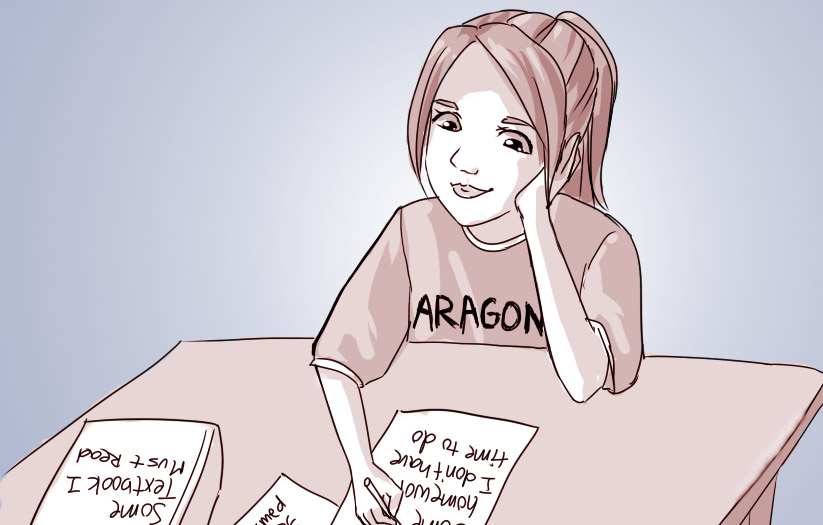

Every P.E. class begins with a warmup routine that increases blood flow and reawakens students’ often tired bodies and minds. “It got old,” says senior Howard Chang, recalling his experience in P.E. “I think it would have been awesome to have a break every once in a while.” The benefits of P.E. to the general student body are accepted as fact, with studies supporting the positive correlation between exercise and mental well-being. The real question is: how much P.E. does the school need to make mandatory? How much responsibility should the school give its students when it comes to exercising
Recently, Aragon has begun to enact policies that reflect a change in their philosophy regarding physical education. Aragon has allowed student-athletes to pursue a less rigorous P.E. schedule. Instead of attending P.E. every day, twice a week students involved in Aragon Sports can attend study hall. P.E. teacher Annette Gennaro explains, “It does not affect freshmen. You have to have an A in P.E. and have passed the presidential test.” The presidential test is a fitness test administered to high school students to assess physical fitness. The athletic study hall is active as long as a student is practicing with a team after school, so there is no fixed start or end time for students who can go to the study hall. The program starts about six weeks into the semester and lasts until the student’s sport is over.
The daily practice schedule of Aragon athletes puts the P.E. reform into an understandable context. The core purpose of the change is to allow athletes to make up for the time they lose at home while they are doing sports. “I love athletic study hall,” says Sophomore Oma Skyrus. “It allows me to get more sleep the night before, and then I can focus on classes the next day without having to cram to finish the work.”
Freshmen Michael Lanthier explains, “I think [athletic study hall] is a good idea. It’s good how you get time away from exercising when you’re already exercising at school.”
At the same time, many question whether P.E. even benefits athletes. Sophomore Andros Petrakis, a water polo player, offers his view as an athlete and sophomore currently in the athletic study hall program. “[P.E.] is extremely unnecessary. Athletes get a ton of physical conditioning already.”
Despite some practical benefits, P.E. for students involved with extracurricular sports can be seen as an unnecessary addition to the physical exercise they get from sports. Sophomore David Tong comments, “I think [athletic study hall] should be every day. They say 2 hours of sports makes up for P.E. For example, if you do water polo practice every day, it’s not equivalent to the time they give you off P.E. They should just let you take all the days off.”
In contrast to Aragon, Carlmont High School students require a certain number of P.E. credits that can be completed through four years of P.E. or by completing a certain amount of sports seasons. Athletes who compete in school sports through their four years may not even have to take P.E. Gennaro says, “I don’t think that’s a good system…some school’s have sports teams that are way bigger and the programs end up getting watered down. I think the [athletic study hall] is a good compromise to start with.”
Ultimately, Aragon P.E. has changed, but the reform will probably not see another dramatic shift any time soon. The concept of a four-year program has been brought up for discussion several times but has not yet received serious consideration. Gennaro says, “I think a lot of juniors and seniors stop doing things after P.E., so it would help them. If the athletes had a study hall it would benefit them as well. . . I would love it, but I doubt that’s going to happen.”




